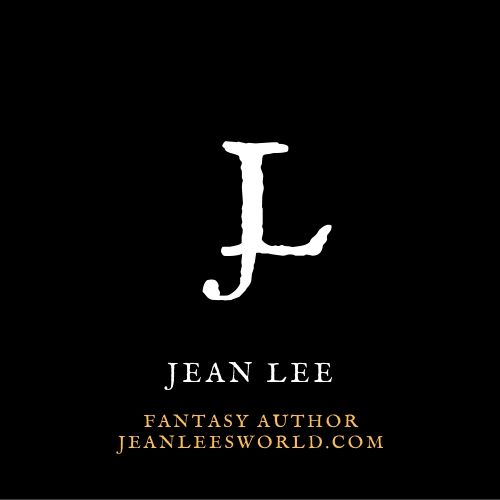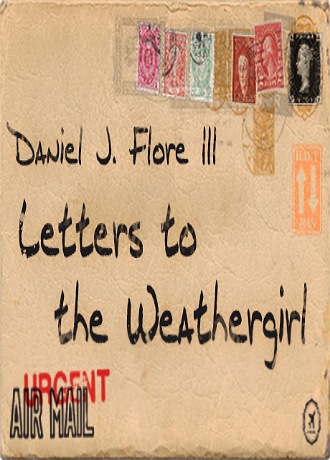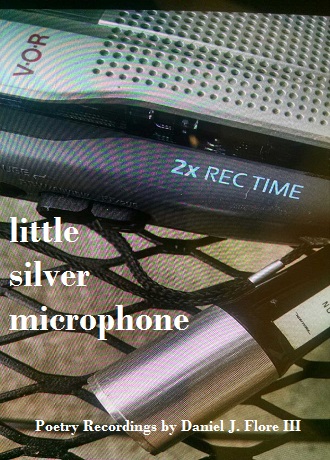Why yes, my friends, it is Tuesday and NOT Thursday. What am I doing here on a Tuesday? I didn’t want to let the last day of #IndieApril go by without promoting more lovely indie authors. Fellow Channillo writers Daniel J. Flore III & Christopher Lee didn’t get a chance to share their serial goodness when I originally promoted Channillo’s authors back in January, so I’m rectifying that now. Enjoy!

Hi, my name is Daniel J. Flore III and my poetry titles on Channillo are the Arrows On The Clock Are Pointing At Me, Venus Fly Trap, Little Silver Microphone, and Letters to the Weathergirl.
*
*
*

My name is Christopher Lee and I am the author of Westward, a Channillo exclusive serial release occult fantasy that blends X-Files and the Magnificent Seven.
*
*
*
What made you choose publishing your work as a serial as opposed to a collection/novel?
DAN: I have collections with my publisher GenZ, Lapping Water, Humbled Wise Men Christmas Haikus, and Home other places I’ve yet to see. Channillo has been a good place for projects of mine that I view as smaller endeavors.
CHRIS: For one I love to write as if my story were being presented as a TV show, each chapter I write feels like an episode of a show to me, so it made sense to present it this way. The format of serial publication allows me to work on my story at the same time as I get feedback from readers on previous chapters, etc which in turn helps make the story better down the road.
What benefits have arisen with plot, character development, and/or voice as you write a serial?
DAN: It’s fun to write these poem-letters in “Weathergirl.” I call it soap opera poetry.
CHRIS: It takes a huge load off of the authorś shoulder to know that they don’t have to crank out a huge manuscript in order for readers to access their work. There is a flexibility that I mentioned before that allows the writer to breath, take a step back, and then return to the keyboard recharged and excited to write the next chapter of the story, not to mention it keeps the readers hungry for more.
*
*
*
I concur about that load being shirked off! However, I know one problem I have when posting my own Young Adult Fantasy MIDDLER’S PRIDE is publishing on time.

What challenges have you faced writing serials?
CHRIS: Honestly, I have not faced any, save that classic HIT THE DEADLINE. When I began to write Westward, I had a fully developed story arc with complete show/chapter ideas. This allows me to simply sit down and write the next installment, whereas had I not done so I might have run into an issue of keeping the story straight, so to speak. Ultimately it is all about consistency when running a serial. You need to market it consistently and produce the content on time so that your readers know they can count on you. After all, there is nothing worse than investing time as a reader in a story that dead ends.
DAN: Letters to the Weathergirl is about a man writing to a news anchor and the reader doesn’t know if he is a deranged fan, or a fan, or her actual lover and I haven’t had any problems developing that. I’m very fortunate.
Now while I myself have never published any poetry, I find it a pleasure to read! It seems to fit well with the serial form. Because I’ve written Middler with the serial publishing platform in mind, I find myself constantly looking for little arcs or episodes to write within the larger novel-arc. How do you feel your writing and/or genre’s been affected by publishing it in a serialized form?
DAN: Letters to the Weathergirl is weekly so when holidays turn up I like writing themed segments. The arrows on the clock are pointing at me was like a fun dumping ground for unpublished poems and I hope to maybe start another series like that. Venus Fly Trap kept my haiku skills sharp and Little Silver Microphone explores recordings both home and live.
CHRIS: I primarily write in the fantasy genre, which I believe is aided by the format. Fantasy in some ways suffers from the drudgery of 600+ page novels that remain inaccessible to the general public at large. Many consumers of media want smaller bites that they can digest while they ride the bus, an Uber, or just before bed, etc. Just look at Netflix and the advent of binge watching or in this case binge reading.
What do you think draws readers to read serial (non)fiction?
CHRIS: Accessibility and consistent content creation are the two major things for me. One that readers can have an a la carte or buffet experience with different genres, authors, and styles. Two is that there isn’t a huge delay between content dumps from the authors, its the exact opposite of the George R.R. Martin effect, for example waiting for years for a conclusion to the story you as the reader have invested time in.
DAN: I like to read serieses on Channillo because I find it relaxing, interesting and a cool thing to catch up with. “The Domesticated Poet” by Kerriann Curtis is one on there I enjoy for those reasons.
Do you receive any reader feedback on your writing as it’s posted? What do you do with those reader comments?
DAN: Yes, I do. I’ve gotten great feedback that has meant a lot to me. Sometimes I post quotes about my series on the work’s homepage.
CHRIS: If I am being honest, I have not received much in the way of comments via the Channillo platform, but I have been contacted via Twitter, Facebook, and email from readers who have given me some of the most constructive feedback I have gotten to date. It is a really cool experience to have that level of connection with the reader. Usually what I do with said commentary is to implement whatever makes the most sense to the story, all while keeping the core message of the reader close to heart.
What advice do you have for fellow writers who want to give serialization a go?
CHRIS: First and foremost you need to have a fully developed story before you kick the thing off. If you don’t have that, then you run the risk of hitting a dead end that could cause you massive problems. Ultimately a plan will save your booty if you get in a pinch.
DAN: Make sure you do your installments on time with interesting material to help build an audience.
I found this quote published in The Washington Post back in 2015, and I’d like you to comment on it:
Critics will undoubtedly moan that serialization would favor literature that’s heavy on cliffhangers and light on subtlety — and that it would corrupt more “serious” works. … Yet it requires the same characteristic any worthy novelist already seeks: momentum — a value that needn’t come at the expense of integrity. –Hillary Kelly, “Bring Back the Serialized Novel”
CHRIS: Kelly makes a great point, though the critics of serialization see it as low art or cheap in quality, I find the process to be far more rigorous. You can simply slap crap together and throw it at the wall and hope that it sticks. In fact, you have to take even more time to craft a tight narrative, then you would in the case of a novel. To run a successful serial you have to keep your readers hooked. In the traditional method, example a fully fledged novel, once they buy your book, the transaction is largely done, you have the readers money, whether or not they come back for subsequent books is altogether another animal. With a serial, you have the flexibility that you don´t have in the traditional sense, and that is the true strength of serialization.
Thanks so much for sharing your thoughts, guys, and good luck building those Channillo stories! You’re reminding me I need to update what’s going on with Meredydd…
In the meantime, check out these authors and other amazing folks at Channillo. You can scope out their amazing store of stories FREE for thirty days. Who knows? Maybe you’d like to write for them, too!

Tomorrow I’ll be compiling all the indie author interviews from this month and sharing them on my newsletter, along with a couple updates on my own writing. Be sure to subscribe so you don’t miss out!
Read on, share on, and write on, my friends!





Really interesting. I’m getting drawn more to serialisation. You often don’t get huge chunks of time to read a full on 600 page novel. You might get some time one day then nothing for weeks. You then return to a part read book much later and almost need to reread to catch back up again. Serials fit in with this chaotic lifestyle better.
LikeLiked by 1 person
It really does!
LikeLiked by 1 person
Well, Ms Lee. Your interview month has gone down a treat. Another fascinating post. Best wishes to both you and your contributors.
LikeLiked by 1 person
Many thanks, Master Steeden. Best wishes to you as well! xxxxx
LikeLike
That was really interesting, and very timely. I was only chatting about this yesterday with a couple of people. Great advice and insight and definitely something worth exploring. I’m always up for a new challenge!
LikeLiked by 1 person
Thanks, Chris! I think it’s a fun challenge to work out different ways a writer can challenge him/herself 🙂
LikeLike
This is interesting, I suppose plenty of people have already recognised that many of the classic nineteenth century novels were published as serial episodes. It’s interesting to see how Dan and Chris approach writing in this format, and how they deal with the responses of their readers. Nice interview.
LikeLiked by 1 person
Thank you! Yes, it’s interesting how the publishing cycles return…
LikeLiked by 1 person
Jean, I like the interview format here (and you do it elsewhere on the overall blog, of course) of questions for the author(s), their answers, and then you reflect on their answers out-loud (for us to read–yay!) and then move into the next question. To me, that seems a good way to spice up the format rather than just diving into the next question without pause. I probably missed this mentioned somewhere in this particular blog post, but serials of course used to be somewhat more de rigueur, before television, internet, and the 24-hour news cycle, from political treatises and tracts to novels like Dickens’ A Christmas Carol. In short, serials have a significant history in literature, and so I like what Chris said about it being thought of (by some) as a “low” art, but it’s really not that, at least not for those who strive to create art that matters. (P.S. In a quick google search, I found this source–seems like a good one–about the history of serial novels. So these Channillo novelists are in great company with Anna Karenina, Crime and Punishment, Ulysses, all of Dickens’ works apparently, George Eliot’s Middlemarch, et al: https://booksonthewall.com/blog/serial-novel-a-brief-history/)
LikeLiked by 1 person
Oooo, thanks for commenting! I think people forget Dickens was paid by the word, and books were not published nearly so regularly as magazines. Serials were the best way to garner readership–and a steady paycheck, if you were a writer. Now we all have our need to binge on stories all at once–we can’t just wait a week for the next installment, we need THE WHOLE SEASON NOW! Ugh. Patience, people! 🙂
LikeLiked by 1 person
Yes, totally Jean! There’s a comment at that link I put in my comment and the writer mentions this, and he also talks about web serials, which I haven’t read a huge amount of, but I definitely like the concept. I did “do” a serial on my blog–if memory serves, over about 5-7 posts–of a paranormal romance. I really enjoyed that, from an authorial perspective, and have thought lately about some way to get that work out to a wider audience. Wouldn’t it be grand to get $1/word? 🙂 I know some magazine writers still command that (or higher), but it’s hard to come by in the fiction world; as you know, SFWA mandates 6 cents/word as qualifiication for membership (unless it’s gone up in the last year and I’ve missed that). I’m still looking to break into that, personally. Anyhow, I won’t keep you–have an enchanting week!
LikeLiked by 1 person
Thanks so much–hope your week is awesome again!
LikeLike